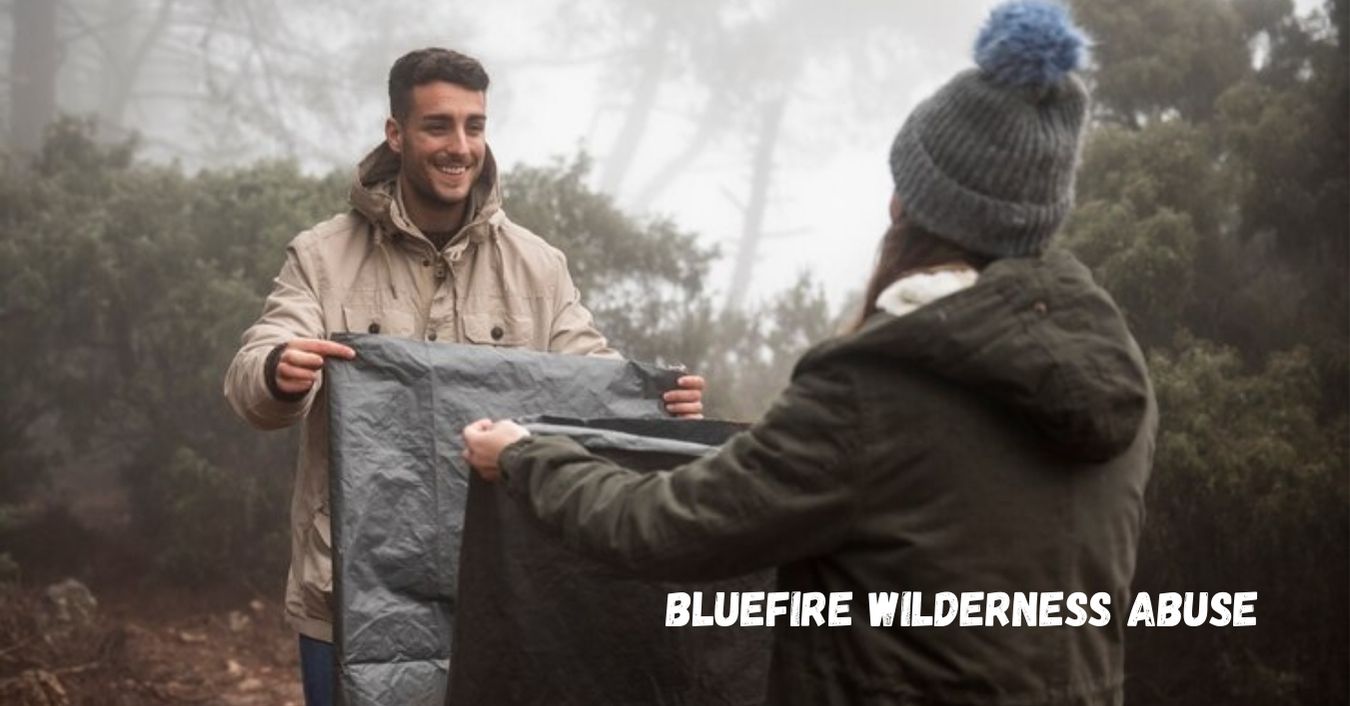Bluefire Wilderness Therapy, known for helping troubled teens, has recently faced serious allegations of abuse. These concerns have sparked intense debates among parents, professionals, and the general public. It is crucial to explore the accusations to understand the possible implications and the reality behind these claims.
Background of Bluefire Wilderness Therapy
Bluefire Wilderness Therapy is a program designed to help adolescents struggling with various challenges such as behavioral issues, substance abuse, and mental health disorders. The program uses a combination of wilderness therapy, adventure therapy, and traditional counseling techniques to encourage personal growth and emotional healing. Located in Idaho, the program markets itself as a safe and supportive environment where teenagers can find the help they need. However, recent allegations have cast a shadow over this reputation, leading to serious questions about the safety and efficacy of the program.
The Nature of the Allegations
The allegations against Bluefire Wilderness Therapy revolve around accusations of physical, emotional, and psychological abuse. Former participants and their families have come forward with stories of mistreatment that range from verbal intimidation to physical harm. These accusations have been both shocking and heartbreaking, particularly for parents who entrusted the program with their children’s well-being. The claims suggest that rather than providing a nurturing environment, the program may have subjected teens to harmful practices under the guise of tough love and therapeutic intervention.
Physical Abuse Concerns
One of the most distressing allegations involves physical abuse. Some former participants have reported being subjected to harsh physical conditions that went beyond the expected challenges of wilderness therapy. They describe situations where they were forced to endure extreme weather conditions without adequate protection, leading to physical harm. Others have claimed that staff members used physical restraint inappropriately, causing injuries and trauma. These reports have raised significant concerns about the training and oversight of the staff at Bluefire Wilderness Therapy.
Emotional and Psychological Abuse Claims
In addition to physical abuse, there have been numerous claims of emotional and psychological abuse. Participants have described an environment where they were constantly belittled and demeaned by staff members. They report that the program used fear and intimidation as tools for control rather than support and guidance. This type of environment can have long-lasting effects on a teenager’s mental health, potentially exacerbating the very issues the program is meant to address. Critics argue that the emotional toll of such experiences can outweigh any potential benefits of the wilderness therapy approach.
Impact on Families
The allegations of abuse at Bluefire Wilderness Therapy have had a profound impact on the families involved. Many parents feel betrayed, having believed they were sending their children to a place of healing and recovery. Instead, they are now dealing with the aftermath of trauma that their children experienced while under the program’s care. The emotional and financial toll on these families is significant, as they struggle to find appropriate care and support for their children after such a damaging experience. The trust that was once placed in therapeutic programs like Bluefire has been deeply shaken, leading to calls for greater accountability and oversight in the industry.
Legal and Ethical Implications
The abuse allegations have also led to legal actions against Bluefire Wilderness Therapy. Some families have filed lawsuits seeking justice for the harm their children suffered. These legal battles are bringing to light the broader issue of regulation and oversight in the wilderness therapy industry. Critics argue that the lack of strict regulations allows for abusive practices to go unchecked, putting vulnerable teenagers at risk. The ethical implications are equally troubling, as the very foundation of therapeutic care is based on trust and the promise of safety. If these allegations are proven true, they represent a severe breach of that trust and a failure of the system meant to protect those in need.
The Response from Bluefire Wilderness Therapy
In response to the allegations, Bluefire Wilderness Therapy has denied any wrongdoing. The program’s representatives have stated that they take the safety and well-being of their participants very seriously and that they adhere to all industry standards and regulations. They have also emphasized the positive outcomes that many participants have experienced through their program. However, the growing number of allegations and the intensity of the claims have made it difficult for Bluefire to fully quell the concerns. The situation has put the program under intense scrutiny, with many calling for an independent investigation into the practices and culture at Bluefire Wilderness Therapy.
The Need for Reform in Wilderness Therapy
The controversy surrounding Bluefire Wilderness Therapy has highlighted the need for reform in the wilderness therapy industry as a whole. Advocates for change argue that there must be stricter regulations and more comprehensive oversight to ensure that programs like Bluefire operate in a safe and ethical manner. This includes better training for staff, clearer guidelines on acceptable practices, and more robust systems for reporting and addressing complaints. The goal is to create an environment where therapeutic programs can truly be a place of healing, free from the risks of abuse and harm.
Moving Forward
As the situation with Bluefire Wilderness Therapy continues to unfold, it is essential for parents, professionals, and the public to stay informed and vigilant. The allegations of abuse are a stark reminder of the potential dangers that can exist in therapeutic settings, particularly for vulnerable populations like troubled teens. By demanding transparency, accountability, and higher standards in the industry, it is possible to protect the well-being of those seeking help and ensure that programs like Bluefire fulfill their promise of providing safe and effective care.
Conclusion
The abuse allegations against Bluefire Wilderness Therapy are deeply concerning and warrant serious attention. While the program has denied any wrongdoing, the stories of those who have come forward cannot be ignored. It is crucial for the wilderness therapy industry to undergo significant reform to prevent future incidents and to ensure that all therapeutic programs operate in a manner that prioritizes the safety and well-being of their participants.
FAQs
What is Bluefire Wilderness Therapy?
Bluefire Wilderness Therapy is a therapeutic program designed to help adolescents struggling with behavioral, emotional, and mental health challenges through a combination of wilderness therapy, adventure therapy, and counseling.
What are the allegations against Bluefire Wilderness Therapy?
The program has been accused of physical, emotional, and psychological abuse by former participants, who have reported mistreatment ranging from verbal intimidation to physical harm.
How has Bluefire Wilderness Therapy responded to the allegations?
Bluefire Wilderness Therapy has denied any wrongdoing and stated that they adhere to industry standards and regulations, emphasizing the positive outcomes experienced by many participants.
What legal actions have been taken against Bluefire Wilderness Therapy?
Some families have filed lawsuits seeking justice for the harm their children allegedly suffered while in the care of Bluefire Wilderness Therapy, bringing attention to the need for greater regulation and oversight in the industry.
What changes are being called for in the wilderness therapy industry?
Advocates are calling for stricter regulations, better training for staff, clearer guidelines on acceptable practices, and more robust systems for reporting and addressing complaints to ensure the safety and well-being of participants in therapeutic programs.















